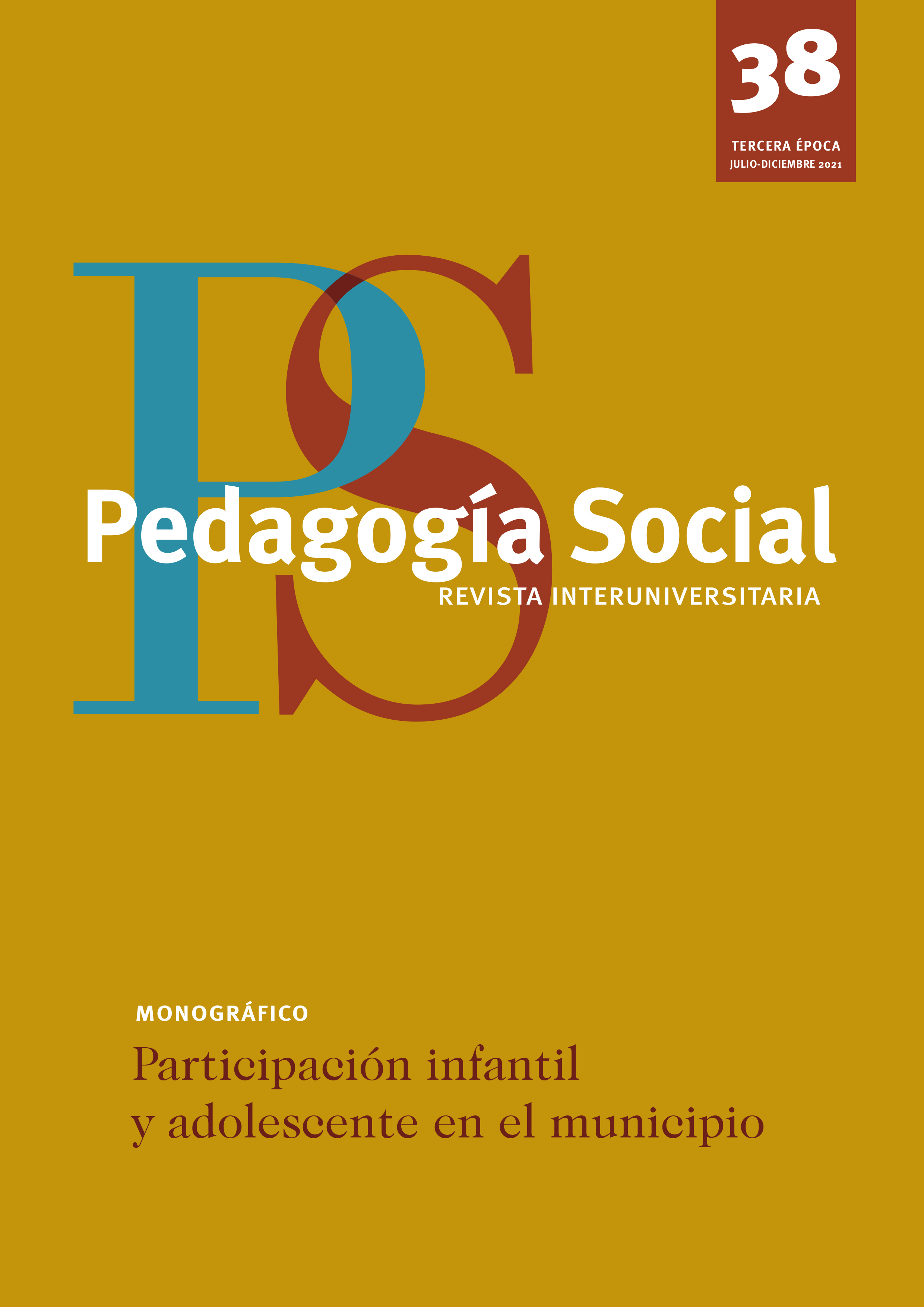Enfoques para promover la participación infantil y adolescente
DOI:
https://doi.org/10.7179/PSRI_2021.38.01Palabras clave:
Participación infantil; derechos del niño; agencia; educación intercultural; feminismo.Resumen
La participación constituye un fin en sí mismo que redunda en la autonomía individual y empoderamiento colectivo, a la vez que es también un medio que fortalece la calidad democrática de nuestras sociedades. Reconocida como derecho universal humano (1948), el derecho a participar queda protegido para la ciudadanía infantil en la legislación internacional de mediados y último tercio del siglo XX que asume la infancia como sujeto de derechos. Los estudios acerca de la participación de este colectivo se apoyan en dicho reconocimiento jurídico para aproximarse a la realidad desde un enfoque de derechos donde niños, niñas y adolescentes constituyen actores sociales. Este artículo se propuso realizar un ejercicio de sistematización teórica acerca de la participación en general y de la participación infantil y adolescente en particular, a la luz de otros enfoques que consideramos complementarios al enfoque de derechos, pero escasamente explotados: el enfoque de capacidades, el enfoque feminista y el enfoque intercultural desde una lectura socio-crítica. Los resultados del análisis teórico-conceptual permitieron vincular el concepto de participación con los de agencia y autonomía, así como evidenciar las inercias y barreras sociales, culturales e institucionales que limitan los procesos participativos en la ciudadanía, con especial incidencia en las experiencias y vivencias de la infancia y la adolescencia. Se concluye que la participación de niños, niñas y adolescentes hace referencia a una capacidad individual, colectiva y territorial, expuesta y limitada por estereotipos binarios o patriarcales y adultocéntricos. Los tres enfoques planteados nos invitan, en definitiva, a repensar la participación infantil y adolescente desde los valores de autonomía, responsabilidad, igualdad y diversidad.
Descargas
Descargas
Publicado
Cómo citar
Número
Sección
Licencia
Derechos de autor 2021 Pedagogía Social. Revista Interuniversitaria

Esta obra está bajo una licencia internacional Creative Commons Atribución-NoComercial-CompartirIgual 4.0.
Derechos de reproducción y archivo
La versión publicada de los artículos podrá ser autoarchivada por sus autores en repositorios institucionales y temáticos de acceso abierto. No obstante la reutilización total o parcial de los mismos en nuevos trabajos o publicaciones deberá ser autorizada por Pedagogía Social. Revista Interuniversitaria.
Los trabajos publicados deberán ser citados incluyendo el título de la Revista, Pedagogía Social. Revista Interuniversitaria, nº, páginas y año de publicación.
Responsabilidades éticas
Pedagogía Social. Revista Interuniversitaria no acepta material publicado anteriormente en otros documentos. Los/as autores/as son responsables de obtener los permisos oportunos para reproducir parcialmente material de otras publicaciones y citar correctamente su procedencia. Estos permisos deben solicitarse tanto al autor/a como a la editorial que ha publicado dicho material.
Es obligación de Pedagogía Social. Revista Interuniversitaria detectar y denunciar prácticas fraudulentas.
En la lista de autores/as firmantes deben figurar únicamente aquellas personas que han contribuido intelectualmente al desarrollo del trabajo.
La revista espera que los/as autores/as declaren cualquier asociación comercial que pueda suponer un conflicto de intereses en conexión con el artículo remitido.
Los autores deben mencionar en el manuscrito, preferentemente en el apartado del método, que los procedimientos utilizados en los muestreos y controles han sido realizados tras la obtención de consentimiento informado.
La revista no utilizará ninguno de los trabajos recibidos con otro fin que no sea el de los objetivos descritos en estas normas.
Aviso de derechos de autor/a
© Pedagogía Social. Revista Interuniversitaria. Los originales publicados en las ediciones impresa y electrónica de esta Revista son propiedad del Pedagogía Social. Revista Interuniversitaria, siendo necesario citar la procedencia en cualquier reproducción parcial o total.
Salvo indicación contraria, todos los contenidos de la edición electrónica se distribuyen bajo una licencia de uso y distribución “Creative Commons Reconocimiento-No Comercial 3.0 España” (CC-by-nc). Puede consultar desde aquí la versión informativa y el texto legal de la licencia. Esta circunstancia ha de hacerse constar expresamente de esta forma cuando sea necesario.






